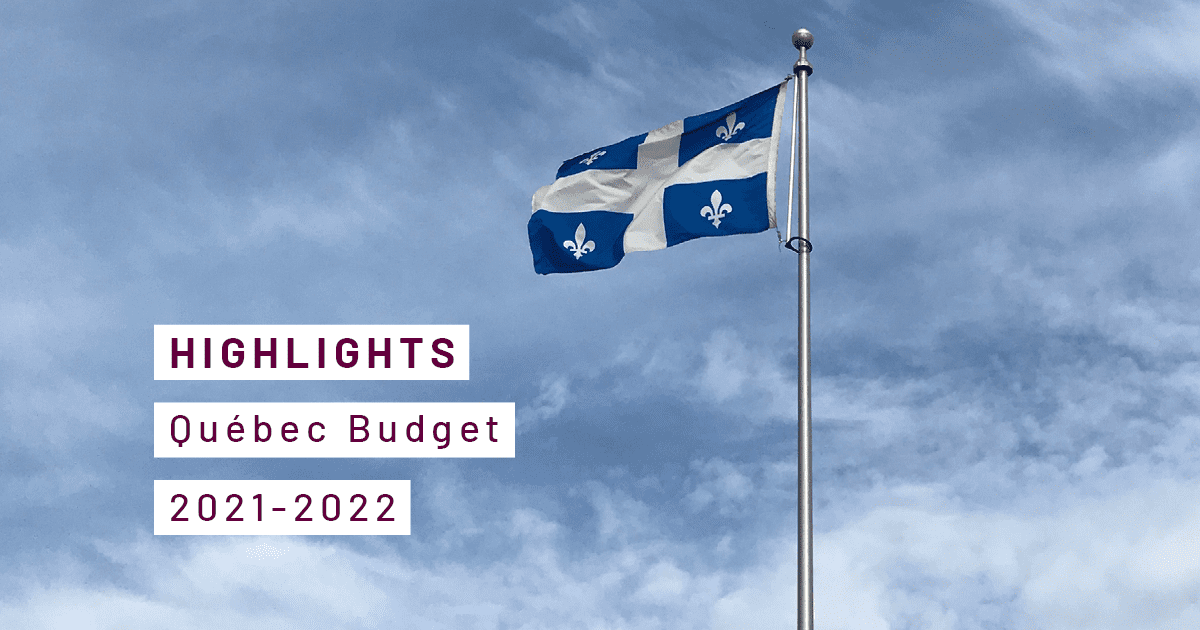Seniors over the age of 70 are entitled to a tax credit for various home support services. The credit is 35% of the amount paid for eligible services. The maximum amount eligible for the credit is $19,500 per year, or $25,500 per year, depending on whether the individual is a non-dependent or a dependent senior. As well, the credit for non-dependent seniors is income sensitive and is clawed back if family income exceeds a certain threshold. To enhance the credit the following changes are being proposed:
- The present credit of 35% will be increased by 1% per year starting in 2022 for 5 years, and will reach 40% in 2026 (the “enhanced credit”).
- At present, the credit for non-dependent seniors is gradually clawed back at 3% when family income exceeds $60,135. This amount is indexed annually. Starting in 2022, there will be two reduction thresholds for the claw back calculation depending on family income. The current 3% claw back will remain for income between $60,135 and $100,000. If family income exceeds $100,000, the credit will be reduced at the rate of 7% for every dollar over $100,000. Both thresholds are indexed annually.
- Dependent seniors are currently not subject to claw back regardless of family income. The budget proposes the enhanced credit will be reduced for dependent seniors at the same rate as for non- dependent seniors.
- The maximum credit basis for seniors living in rental apartment buildings is being doubled from $600 to $1,200 of monthly rent. Starting in 2022, renters will be eligible for advance payments on an assumed rent of $600 per month, similar to advance payments currently available to condominium owners and residents of private seniors residences.
Correspondingly, the tax credit for non-eligible dividends will decrease from 4.01% of the grossed-up dividend amount, to 3.42% for dividend received or deemed received after December 31, 2021.
Due to the COVID-19 pandemic, Quebec corporations may send a request to use the prior year labor hours for taxation years ended after June 30, 2020 and before July 1, 2021.Distribution platform operators (such as Amazon) should register under the regular QST system if they have a warehouse in Quebec and sell to Quebec consumers (non-registrants). If they are registered under the GST/HST system, they should register under the specified QST registration system in Quebec where sales are from the rest of Canada to Quebec consumers exceed $30,000 during a 12-month period.
Non-resident vendors should register under the regular QST system where their sales are made through a fulfilment warehouse. If registered for the GST/HST system, they should register under the specified QST registration system in Quebec, where sales from the rest of Canada to Quebec consumers exceed $30,000 during a 12-month period. The above two provisions are scheduled to apply on July 1, 2021 when similar federal provisions will be effective.
In addition, Quebec will harmonize with the Federal government and subject platform-based short-term accommodations (such as Airbnb) to QST, effective July 1, 2021.A temporary increase was announced in the tax credit for investment and innovation, doubling the tax credit rates for eligible expenditures incurred, with respect to manufacturing and processing equipment, general-purpose electronic data processing equipment and certain management software packages. The increased credit applies on qualifying expenses incurred after March 25, 2021 but before January 1, 2023 to acquire the specified property by January 1, 2023 or April 1, 2023. The tax credit rates will increase from 10% to 20% for property used in the high economic vitality zone, from 15% to 30% for the intermediate zone, and 20% to 40% in the low economic vitality zone.
The new rates apply for property acquired in accordance with a written obligation contracted after March 25, 2021 and before January 1, 2023, or, property whose construction began after March 25, 2021 and before January 1, 2023. The rate of the tax credit for the period after December 31, 2022 and before January 1, 2025 returns to 10%, 15% and 20% respectively.To encourage businesses to establish apprenticeship-style programs, the basic refundable tax credit available will be increased from 24% to 30% for corporations and from 12% to 15% for individuals who are carrying on a business.
The revised tax credit is based on wages paid to the trainee and to the supervisory personnel. The budget stipulates that the changes will apply to costs incurred after the budget date and before May 1, 2022, in respect of a qualifying training period beginning after the budget date.
The enhanced credits previously available when hiring disabled, immigrant or aboriginal persons, or where the training takes place away from the large urban centers of the province, will also be increased from 32% to 40% for corporations and from 16% to 20% for individuals.Get all our latest tax and other news in your mailbox.








